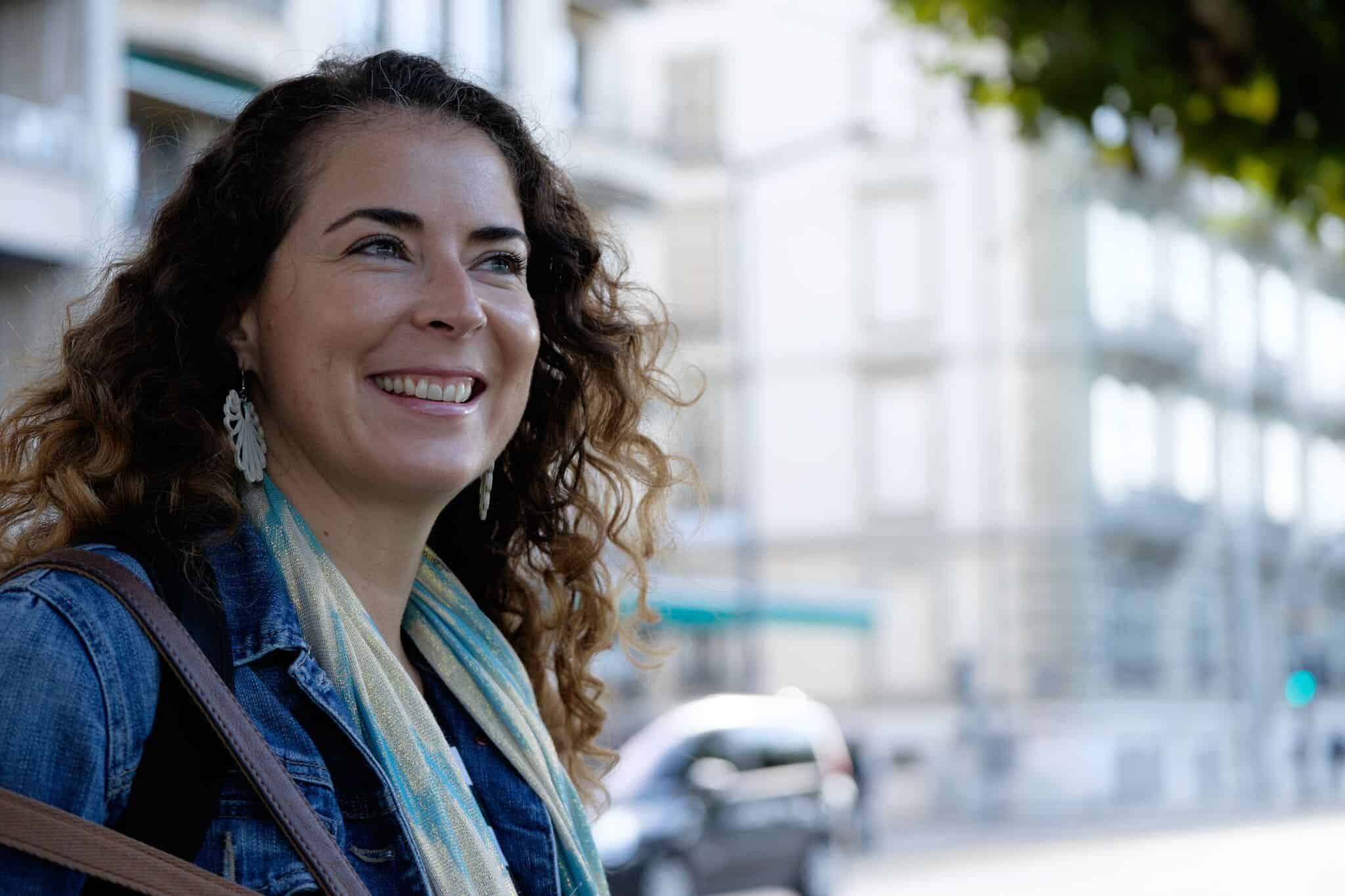This is the story of a woman whose courage and optimism simply can’t be measured.
Claire McFarlane, 37, was born in South Africa but moved with her family to Australia as a teenager. At the age of 19, she traveled with a friend to Paris, where she studied fine arts and worked at a bar to help pay for her education. As she was leaving the bar at 3 am on July 18, 1999, a man attacked and raped her so violently that she almost lost her life.
Three months after the attack and continual collaboration with the French police, McFarlane decided to move back to Australia. Without fully acknowledging the effects of the traumatic event that had happened to her, she went on studying at an arts college in Australia. Pushing herself to the limit and keeping herself busy was her lifestyle for the next ten years, until 2009.
That was the year that would force McFarlane to relive her tragedy and confront her fears anew. The French police called to ask her to come back to Paris to identify the man they believed had raped her. She did so, and then continued with the legal and civil process to put him in jail.
The French legal system requires significant investment on the part of the victim to ensure the process is carried out. In total, McFarlane says she spent about $40,000 during the years of legal and civil proceedings, and that her case was unusual precisely because many victims are not willing or able to make it through the grueling and expensive process.
In 2011, the rapist was sentenced to twelve years of jail; he would serve four years before being released on parole. In 2015, after additional civil proceedings, McFarlane put the legal process behind her and was able to continue with her life – a life that now includes a mission to create change on the issue of sexual violence worldwide.
McFarlane’s joyous, strong and fighting attitude led her to create a global campaign to raise awareness about sexual violence in a positive and peaceful manner. Her vision of being the change she wants to see in the world led her to think outside the box and create Footsteps To Inspire, a global series of runs that have been held at 192 beaches throughout 184 countries.
On July 18, 2016 she began her journey in South Africa, and has since been to New Zealand, Fiji, Papua New Guinea, Solomon Islands, Sri Lanka, South India, Thailand, Cambodia, Malaysia, Singapore, the Philippines, Taiwan, Japan, the United States, Costa Rica, Nicaragua, El Salvador, Guatemala, and Mexico, all with the sole purpose of raising awareness about this topic by speaking with governments and NGOs.
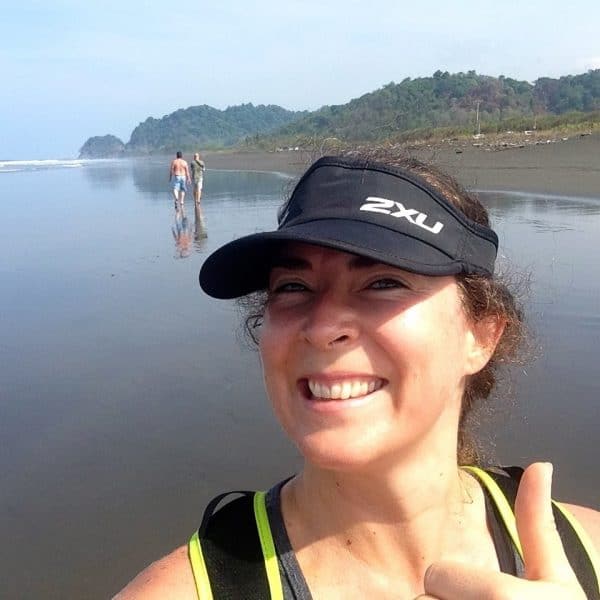
During her visit to Costa Rica, on a rainy afternoon at Restaurant Kalú in San José’s Barrio Escalante, The Tico Times sat down and spoke with McFarlane about her life and work. Excerpts follow.
What was your life like before the rape?
I was very young, so my life as an adult had just begun. I had started university in Australia to become a family doctor and then specialize; the first year was very difficult and I didn’t know if I wanted to do that. A friend of mine told me that she was going to live in Paris, France, and that I should come. I was like: “Ahhh, yes. This is great. I know nothing about France, but I like this idea.”
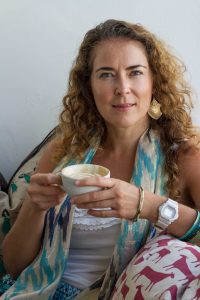
I went there to work for one year, but I realized I was very passionate about art as well. I started to study in France to become a fine artist. I was self-funding, so I would study and then I worked at night in a bar. Unfortunately, that all changed on the 18th of July, 1999. I was going to get a taxi after work and this man attacked me.
What happened?
I was very violently attacked. The man who grabbed me tried to kill me straight away, but I fought very hard to escape. The more I fought, the more he beat me. It lasted a really long time… He managed to strangle me until I lost consciousness. I thought I was going to die, that it was the end of my life.
After the attack I was lying on the street and trying to decide what to do. I thought for a moment, should I go home and pretend it never happened? But I realized I was really injured and I had to go to a hospital. That was a really important moment because I had to make a decision about facing that really difficult journey as a survivor after this.
I went to a hospital and the hospital was busy. I waited for five hours before a doctor came to see me, and then it was a real battle. I was in the hospital for a long time in the emergency room. I had to stay because of my injuries and they just needed to assess me.
When you get raped, you have to go through a series of special treatments to prevent sexually transmitted diseases. I also needed to take a retroviral medication. It’s to help not catch HIV, because I was at a really high risk of catching it, and that’s horrible. For six weeks I was just living in a blur just because of that. It’s very strong medicine. I worked very closely with the police and they were very stressed. He’d done it before.
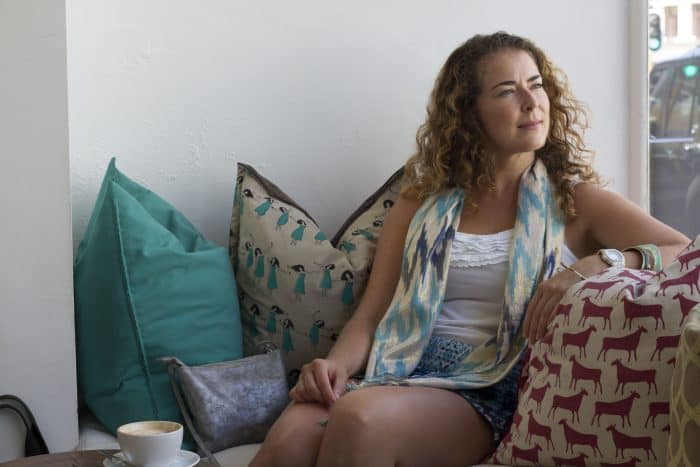
Did the police already know the man had raped someone before you?
Yeah, and there was a DNA match. They got DNA off of me and there had been another victim a month before me. It was really difficult because it happened in the exact same spot where I was attacked. They hadn’t told anyone in the area; it was full of bars, restaurants, and universities, and lots of university students, backpackers, and females living on their own. I was very angry with them because they chose not to warn anyone about what had happened before, so it was collateral damage.
I’m very glad I didn’t die. I collaborated a lot with the police to try and catch him, but they didn’t. It took about three months of medical followup, working with the police, and then I realized that my life… I couldn’t keep living in France.
My dreams of becoming a fine artist were shattered. I moved back to Australia and tried to restart my life. I was really happy to be alive. It was kind of a strange thing because it was a response to trauma in a different way… I was really happy to be alive and I never denied I was raped, but I denied it had impacted my life.
What happened afterwards?
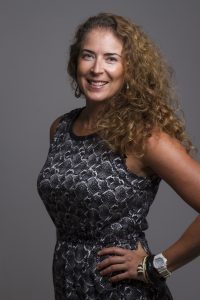
For ten years I got very busy. The first year back in Australia I studied at an art college. I had two jobs and became a dive master. This was in one year, so my life was spontaneous. It’s like a coping mechanism… and then, in 2009, two weeks before the ten-year anniversary of the attack, I got a call from the police in France. They asked me to go to Paris because they believed they had caught him.
I pointed him out straight away, and that’s when my world fell really apart. I realized that I couldn’t cope by keeping really busy. It wasn’t going to help me anymore.
Did you seek for psychological help or support from NGOs to deal with this?
Well, in France there aren’t any, really. At the time there was one that was very, very small, but they couldn’t provide me with services because I was a foreigner and they didn’t have English services to offer. Then again, the problem in Australia was that I wasn’t attacked in Australia. It was very hard to access services.
I just kind of got on with my life, really. Well, I thought I did. When I got called again, I had to relive everything. I had to start taking care of myself, for healing. I looked back ten years and then I realized how much [the rape] had been kept in my life.
I didn’t take very good care of myself for ten years. I worked really hard. I kept pushing myself over the limit for everything. I lost a lot of respect for myself, so I made bad decisions… not healthy decisions, I think. I didn’t have healthy relationships with men. I found it very hard to trust people.
Of course, the one thing that stayed with me during a very long time was fear. I was very scared to walk on the street. That took years and years to go away.
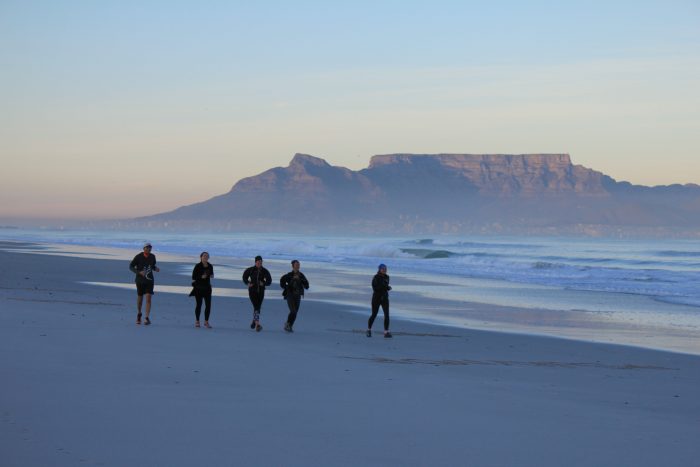
After you identified him, what was the legal process you went through?
That’s very long. I had to declare myself as a civil party, which means I had to find myself my own lawyer and pay for it. Then it took three years before I went to court. For three years they prepared information, and then the criminal proceeding lasted a week. He was sentenced to twelve years of jail, which is quite a good outcome, but he was released on parole less than four years later.
The thing is that it didn’t end for me. The civil process began, and this was a process to try to obtain some compensation and also to send a notice setting a legal precedent in France. My case was a historical first for the French system. Very, very few victims go through the system in France.
After all this happened, how did you decide to run 3,000 km through 184 countries?
I thought of every country with a coastline… I’m running 16 kilometers in every country. The 16 kilometers is a very personal and symbolic meaning for me because my story is 16 years [long].
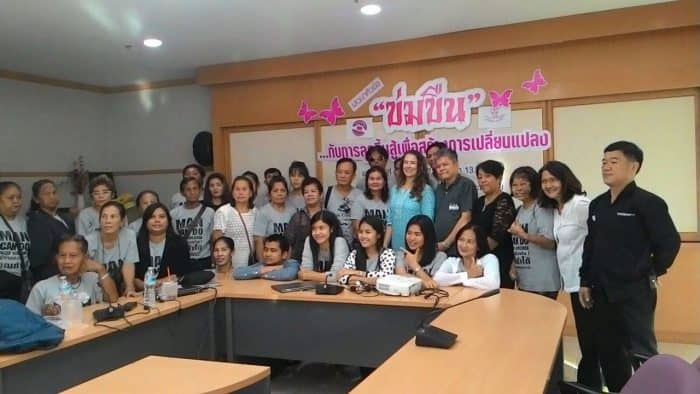
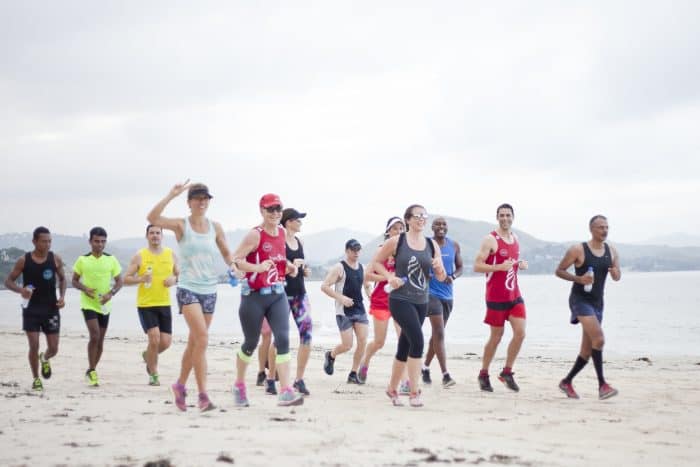
How did you come up with this idea?
I wanted to talk about sexual violence and get people engaged in this dialogue, but in a very gentle, peaceful way. I just thought: sports are a really powerful tool. It’s really important in the healing process, and it brings people together.
They can talk about this as much as they want, or they can just come and run with me and not say anything because it’s important to them and they need to be there. The big long goal is to make it an annual event, so that the run in every country each year on a specific date to raise awareness for sexual violence. Globally, there isn’t anything [like this] at the moment.
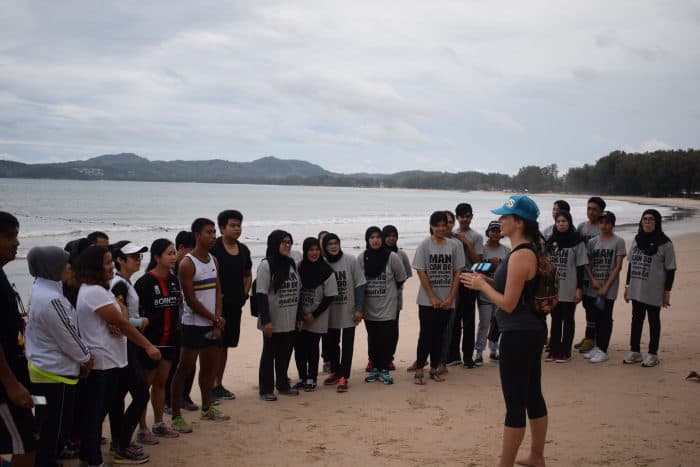
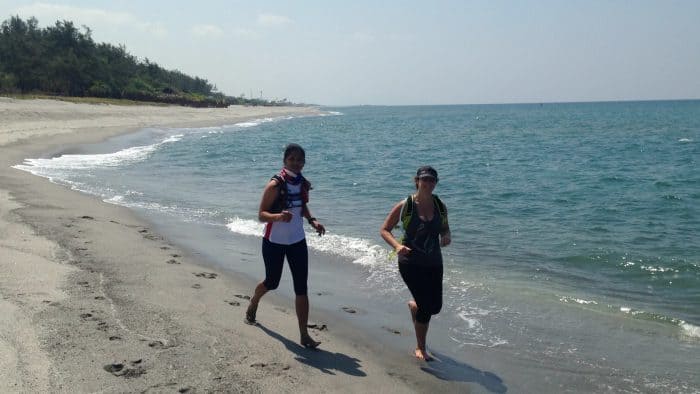
In each country you have visited, what have you learned?
The main thing is that there is a lot of silence and taboo around sexual violence. I think it’s because the victims feel ashamed. They feel a lot of guilt. There’s a lot of pressure from cultural beliefs that sometimes don’t let survivors to speak out and get help. I’m seeing that it’s very common everywhere. It doesn’t matter where you go. It doesn’t matter if it’s somewhere in Asia or if it’s in America. It’s a common, common thing.
I’ve seen some great things as well. It’s amazing. Malaysia really surprised me. Every hospital in Malaysia has a special center for victims of sexual violence and domestic violence for men, women and children.
There is a lack of throwing statistics around too much, because they can be so unbearable. There are two that we see a lot: One in four women in the world will be affected by sexual violence in her life, and one in six men will be sexually assaulted before the age of eighteen. That’s a lot of people.
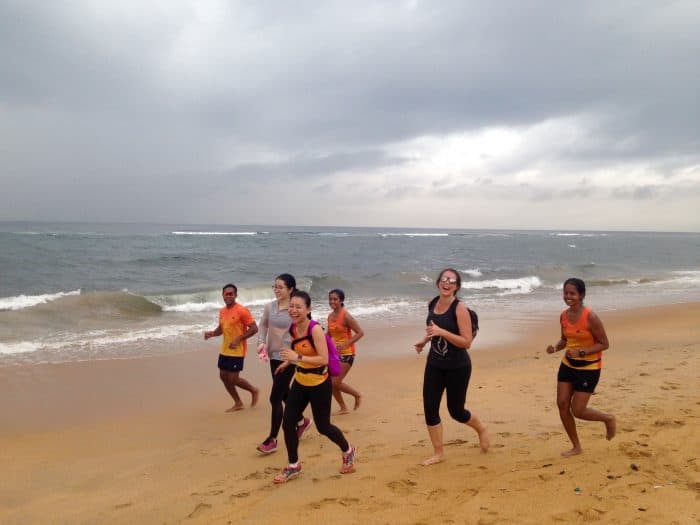
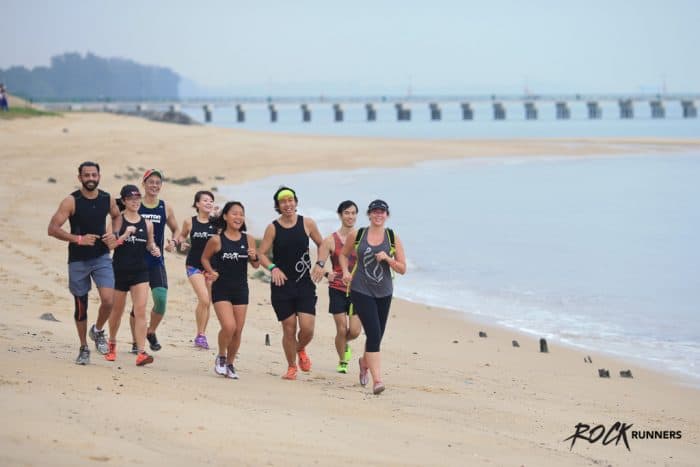
How do you plan to make the topic of sexual assault more visible to others?
I’m hoping to be a role model myself. To show people that there’s no shame. This terrible trauma can happen in your life and it will affect you; there’s no denying that it will affect you, but it’s ok. It wasn’t your fault, and you can get through, no matter how hard it is. There is hope on the other side.
That’s the really big message, just to say you can do this. The other the big thing is trying to raise the consciousness of this issue through running. Getting people to speak more about it. I think the more we can talk about it, the easier it’s going to become.
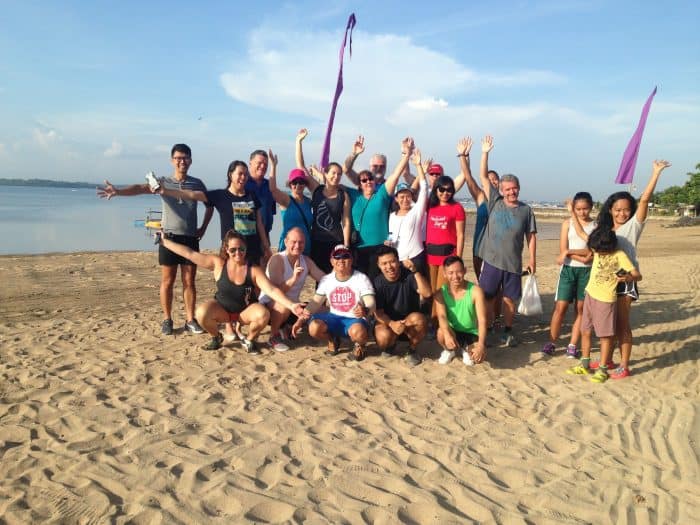
Since this is not only a problem that affects women, what has been the response from men you’ve talked to?
It was really hard when I started this. I thought I would only be focused on women because of me being a woman, but one of the big myths is that sexual violence is only a women’s issue. It’s very hard for men to speak about this. Most of them who share their story with me are much older, so it happened to them when they were children or teenagers, but they’re now 40 or 50 years old when they started to speak about it. The problem is that it has a really bad effect on men.
In some cultures it’s happening so much more to women, but I do think we mustn’t forget about our boys, because things are happening to them. If we can help them when they are young men, they can become positive male role models later in life. If we can’t help them and deny them their help and their voice, we participate in possibly creating monsters later on.
It’s really important to acknowledge that it is happening to men as well. The other thing is the LGBT community. They’re very vulnerable to sexual abuse. Transgender women, in most countries that I’ve been to, are serious victims of sexual violence. Often they’re forced into prostitution and there are the sex trafficking issues. Lesbian women are very vulnerable too.
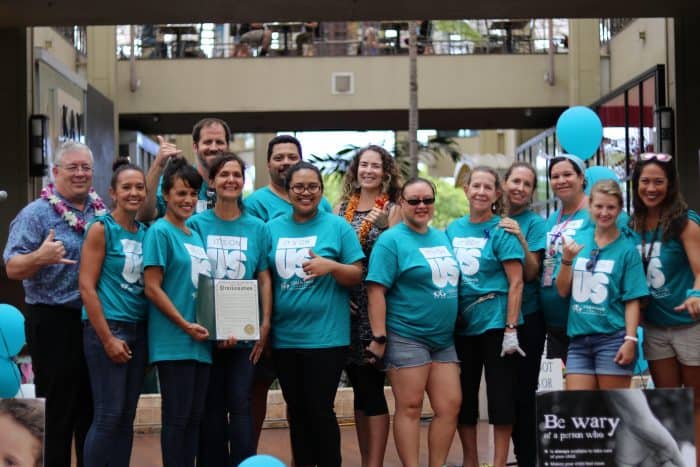
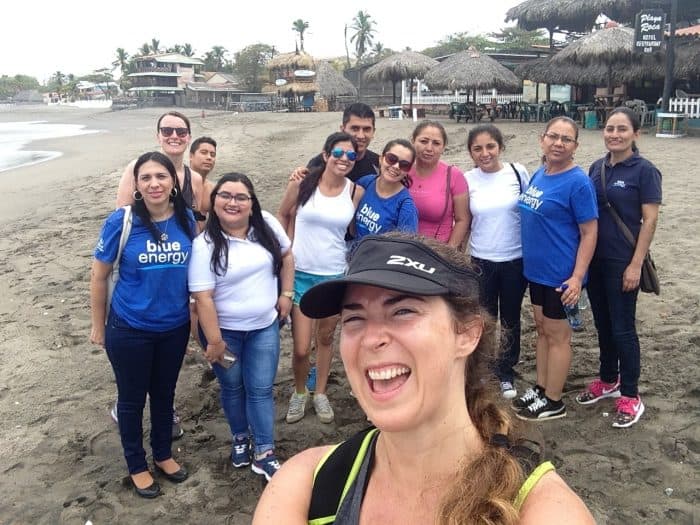
To change that culture of sexual violence, how should education address it?
You said the right word. I think we need to start at school. Some countries are already doing that. They are bringing programs to teach children about respect, and respect for themselves: learning to say “no,” what’s okay and what’s not okay. It’s also knowing about what safe touching is for little children and teaching boys and girls to respect each other more. They’re seeing more positive results because children are our future, and I think we can change it with them. If they change the way they behave towards each other, then they become positive adults.
What do you think global leaders should do about these topics?
Sexual violence, in general, and violence against women, dramatically impacts economies. There is a huge productivity loss. [What] I would say to global leaders is put some money into helping people because if you do that, you’re going to have a better economy. I know it’s not a human approach, but I mean, generally, governments don’t care too much about the human approach anyway. We need to talk about it in monetary terms to say, well, you need to empower your population. Give them an opportunity to participate in the country’s growth and to do that you need to help them. You need to help them in ways that they need by acknowledging that sexual violence is a big problem affecting a lot of people, provide services and support to improve this situation.
The other thing I think is really big is that we do really need a very specific justice system for sexual violence. I’m very happy to say that – and it could be the world’s first ever such court that exists – South Africa opened the first court specifically for sexual violence crimes. It’s amazing. That’s a really big step forward because it’s such a complicated crime.
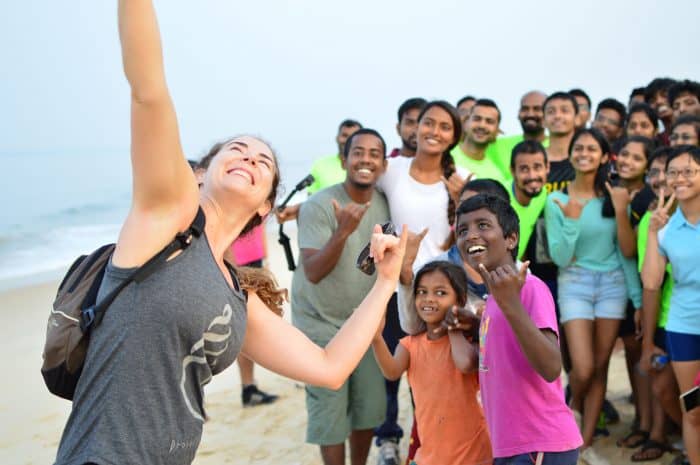
Claire McFarlane visited Costa Rica from April 24-30, 2017. During her visit she spoke with government institutions such as the National Women’s Institute (INAMU), the Judicial Power’s Gender Observatory, and the NGOs ACCEDER and Peras del Olmo. On April 29 she ran in Playa Hermosa, Jacó. Since her visit to Costa Rica she has been to Nicaragua, El Salvador and Guatemala. McFarlane was in last week in Mexico and currently is en route to England. This year she will be speaking at TEDx for a second time about her story and in defense of sexual violence.
For more information about her work, visit the Footsteps to Inspire website, and for more information about sexual violence in Costa Rica, seek help at the Judicial Power’s Gender Observatory on this link.

